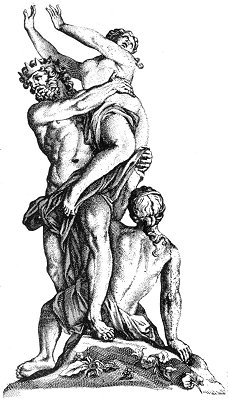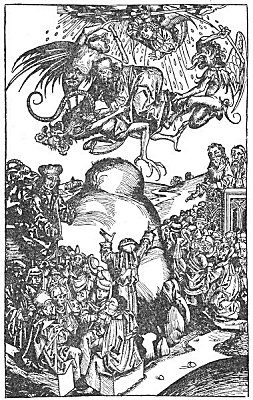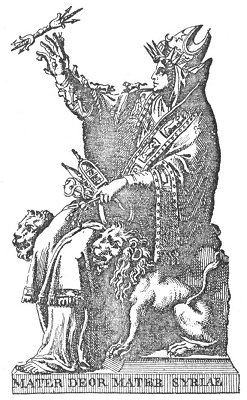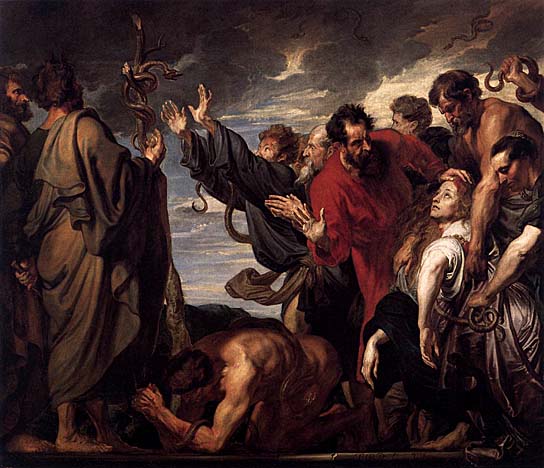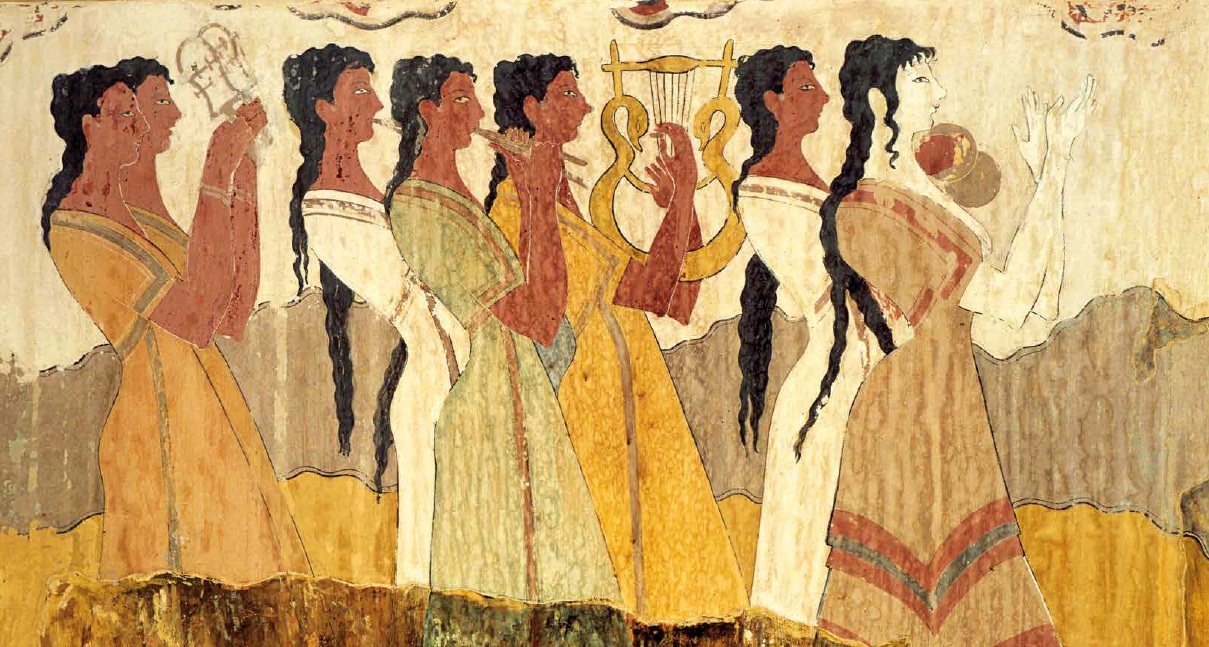From the very day when the first mystic found the means of communication between this world and the worlds of the invisible host, between the sphere of matter and that of pure spirit, he concluded that to abandon this mysterious science to the profanation of the rabble was to lose it. An abuse of it might lead mankind to speedy destruction; it was like surrounding a group of children with explosive batteries, and furnishing them with matches. The first self-made adept initiated but a select few, and kept silence with the multitudes. He recognized his God and felt the great Being within himself. The “Atman,” the Self,the
Page 318
mighty Lord and Protector, once that man knew him as the “I am,” the “Ego Sum,” the “Ahmi,” showed his full power to him who could recognize the “still small voice.” From the days of the primitive man described by the first Vedic poet, down to our modern age, there has not been a philosopher worthy of that name, who did not carry in the silent sanctuary of his heart the grand and mysterious truth. If initiated, he learnt it as a sacred science; if otherwise, then, like Socrates repeating to himself, as well as to his fellow-men, the noble injunction, “O man, know thyself,” he succeeded in recognizing his God within himself. “Ye are gods,” the king-psalmist tells us, and we find Jesus reminding the scribes that the expression, “Ye are gods,” was addressed to other mortal men, claiming for himself the same privilege without any blasphemy. And, as a faithful echo, Paul, while asserting that we are all “the temple of the living God,” cautiously adds, that after all these things are only for the “wise,” and it is “unlawful” to speak of them.
Therefore, we must accept the reminder, and simply remark that even in the tortured and barbarous phraseology of the Codex Nazaraeus, we detect throughout the same idea. Like an undercurrent, rapid and clear, it runs without mixing its crystalline purity with the muddy and heavy waves of dogmatism. We find it in the Codex, as well as in the Vedas, in the Avesta, as in the Abhidharma, and in Kapila’s Sankhya Sutras not less than in the Fourth Gospel. We cannot attain the “Kingdom of Heaven,” unless we unite ourselves indissolubly with our Rex Lucis, the Lord of Splendor and of Light, our Immortal God. We must first conquer immortality and “take the Kingdom of Heaven by violence,” offered to our material selves. “The first man is of the earth earthy; the second man is from heaven. . . . Behold, I show you a mystery,” says Paul (1 Corinthians, xv. 47). In the religion of Sakya-Muni, which learned commentators have delighted so much of late to set down as purely nihilistic, the doctrine of immortality is very clearly defined, notwithstanding the European or rather Christian ideas about Nirvana. In the sacred Jaina books, of Patuna, the dying Gautama-
Page 319
Buddha is thus addressed: “Arise into Nirvi (Nirvana) from this decrepit body into which thou hast been sent. Ascend into thy former abode, O blessed Avatar!” This seems to us the very opposite of Nihilism. If Gautama is invited to reascend into his “former abode,” and this abode is Nirvana, then it is incontestable that Buddhistic philosophy does not teach final annihilation. As Jesus is alleged to have appeared to his disciples after death, so to the present day is Gautama believed to descend from Nirvana. And if he has an existence there, then this state cannot be a synonym for annihilation.
Gautama, no less than all other great reformers, had a doctrine for his “elect” and another for the outside masses, though the main object of his reform consisted in initiating all, so far as it was permissible and prudent to do, without distinction of castes or wealth, to the great truths hitherto kept so secret by the selfish Brahmanical class. Gautama-Buddha it was whom we see the first in the world’s history, moved by that generous feeling which locks the whole humanity within one embrace, inviting the “poor,” the “lame,” and the “blind” to the King’s festival table, from which he excluded those who had hitherto sat alone, in haughty seclusion. It was he, who, with a bold hand, first opened the door of the sanctuary to the pariah, the fallen one, and all those “afflicted by men” clothed in gold and purple, often far less worthy than the outcast to whom their finger was scornfully pointing. All this did Siddhartha six centuries before another reformer, as noble and as loving, though less favored by opportunity, in another land. If both, aware of the great danger of furnishing an uncultivated populace with the double-edged weapon of knowledge which gives power, left the innermost corner of the sanctuary in the profoundest shade, who, that is acquainted with human nature, can blame them for it? But while one was actuated by prudence, the other was forced into such a course. Gautama left the esoteric and most dangerous portion of the “secret knowledge” untouched, and lived to the ripe old age of eighty, with the certainty of having taught the essential truths, and having converted to them one-third of the world; Jesus promised his disciples the knowledge which confers upon man the power of producing far greater miracles than he ever did himself, and he died, leaving but a few faithful men, only half way to knowledge, to struggle with the world to which they could impart but what they half-knew themselves. Later, their followers disfigured truth still more than they themselves had done.

Moe is the founder of GnosticWarrior.com. He is a father, husband, author, martial arts black belt, and an expert in Gnosticism, the occult, and esotericism.


